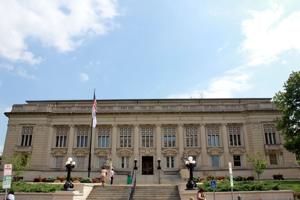(The Center Square) – The fate of billions of dollars in borrowing now lies in the hands of Illinois’ high court.
The Illinois Supreme Court heard arguments Tuesday over a challenge to invalidate $16 billion worth of state borrowing in 2003 and 2017.
John Tillman, who is the chairman of the board of The Center Square, filed a challenge as a private resident in July 2019. The lawsuit alleges a $10 billion bond in 2003 to pay down pension debt and another $6 billion bond in 2017 to pay down a bill backlog runs afoul of the Illinois Constitution.
Tillman’s attorney, Raoul Cantero, argued the state borrowed because of a failure of revenue, which the constitution has separate guidelines for instead of long-term borrowing.
“You don’t have enough revenue coming in to pay expenses,” Cantero said. “That’s a failure of revenue. That’s deficit financing. That’s where they can get deficit financing. However, it has to be limited to 15% of total appropriations and it has to be paid back within one year.”
Justice Mary Jane Theis questioned Cantero about the consequences of voiding the borrowing.
“Your complaint asks the court to order the state to default on billions of dollars of debt,” she said. “Is that reasonable?”
Other justices asked about the ramifications of potentially defaulting on the bonds. Cantero countered that the state would have a number of options should the debt be deemed unconstitutional.
Representing the state was attorney Richard Huszagh, who said the state constitution defers to the legislature for justifying the borrowing.
“They knew what they were doing when they wrote the Constitution the way they did and they did not include any reference to this idea that there is a substantive limitation on the types of purposes for which long-term debt could be issued,” he said.
The case was initially dismissed by Sangamon County Circuit Court Judge Jack Davis, but Tillman won an appeal. An appellate panel said the lower court didn’t properly consider the merits of the taxpayer-originated lawsuit.
In 2020, Attorney General Kwame Raoul asked the Illinois Supreme Court to not only rule on whether the lawsuit was appropriate but also whether the bonds were constitutional.
He said in his brief that doing so “would greatly serve the public interest by eliminating any doubt about the state’s ability to issue long-term debt for purposes other than capital improvements, as it did when it authorized the 2003 and 2017 bonds.”
The court could release its opinion later this year. Most matters of state law end with the state’s Supreme Court but it’s possible the opinion could be appealed to a federal court if a matter of federal law is in question.







